International exchange or field school? A biology undergrad’s perspective
One of the most incredible things about UVic is that you can choose where (and how) you want to learn.
When I first came to UVic, I was enthralled by just how many possible journeys that I could take during my time here. I attended several info sessions about international exchange, field school, co-op, etc. And this is the main theme that I took away from them:
“Do you want to spend a semester learning linguistics and science in Europe? UVic can help you do that.
Do you want real-world job experience while you study here? UVic has your back.
How about studying your passion at one of the most biodiverse areas in the Pacific Northwest? Sure, no problem.”
From these conversations and events, I concluded two things:
1. I am among the most privileged people in the world to be able to make these choices, and
2. I would never be able to decide what journey I should take without thorough research, contemplation, and a grossly generalized ‘pros and cons’ list of my possible options.
Naturally, I spent many months researching these topics and talking to people who had done them…and when I still couldn’t make up my mind, I decided to do all of them.
That’s right; I managed to attend both a year on international exchange (Leeds University, U.K.), and a semester at a field school (Bamfield Marine Sciences Centre).
Coming home, I’ve noticed that the choice between field school and exchange is fairly common in the Biology department, and that other people might benefit from my story!
So here are some key differences that I think could help when choosing between these two incredible opportunities*:
*Note: As you can travel to all corners of the globe during these excursions, your experience will almost certainly be different from mine. However, I’ll try and make my statements as broad as possible so you can get some use out of the list!
International Exchange (Leeds University, United Kingdom)
Pros:
- Living outside of Canada as a student is unlike any other experience you will have.
- Getting to see another culture’s education system taught me to think/learn in different ways, especially in biology (e.g. learning of the way others handle environmental issues, differing political systems, etc.).
- School can also be combined with travel, especially with friends you meet in school! (Who can be, by the way, some of the best people you’ll ever meet.)
- I got to study and pay UVic tuition (~$6000/year) at a university that normally costs students about three times (~$18,000/year) as much.
Cons:
- Adapting to a new educational system can be difficult. For example, final exams in the U.K. are typically worth between 70-100% of the final course grade, and lecture times (and locations) can vary week to week!
- There were times when I had never felt more alone. However, studying abroad made me more independent and confident than I ever had been.
- Because of the difference in education systems, not all of my courses transferred back to exactly what I had hoped for in UVic credits. However, I knew this was likely going to be the case, and it was definitely worth the transfer credit cost.
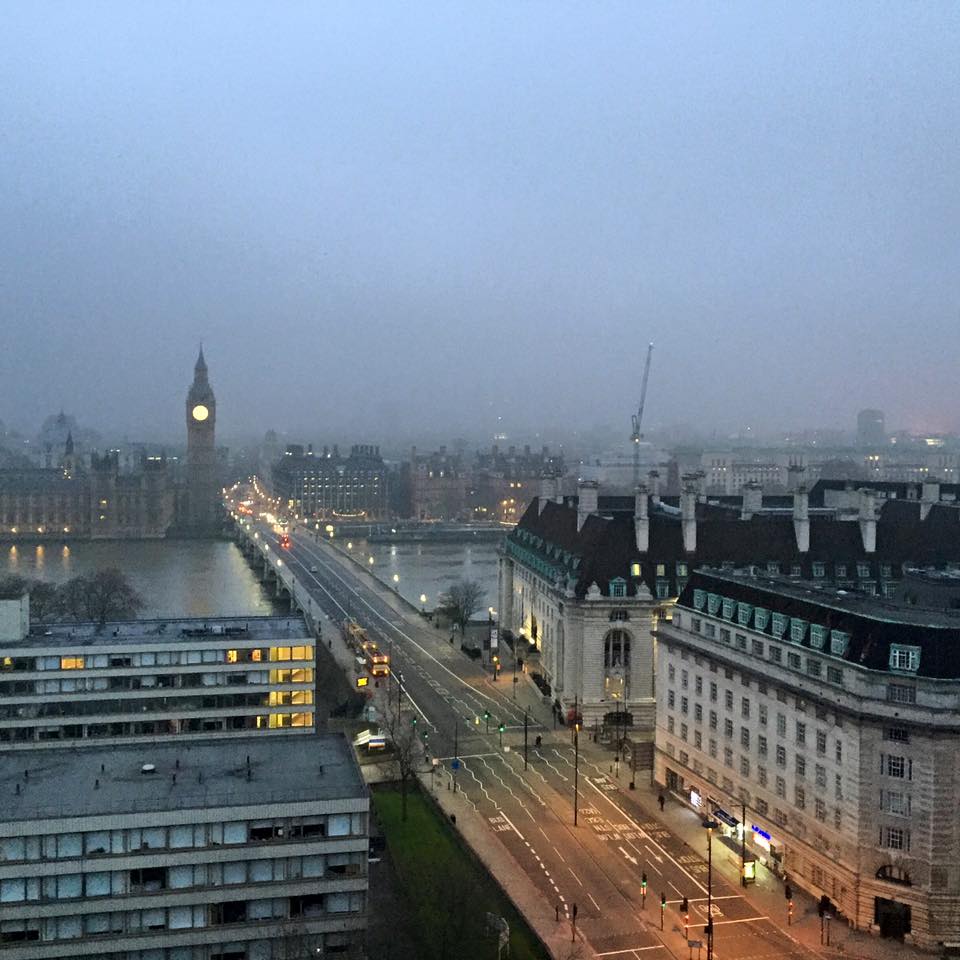
This is the view I woke up to on my 21st birthday! Needless to say, London is an unforgettable city.

And here we casually decided to see how many students could fit into a London telephone booth (hint: it’s an uncomfortable 5 at most).
Field School (Bamfield Marine Sciences Centre, British Columbia, Canada)
Pros:
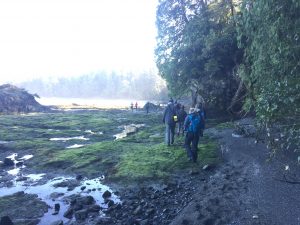
A class field trip to Kiixin, the site of the ancient capital of the Huu-ay-aht First Nations that was inhabited for over 5,000 years.
- I progressed further in my academic career (grades and otherwise) in four months than I had in years of lecture-based classes. This is mainly because:
- Experiential learning: I got to see the context of the area in which I was studying (e.g. biodiversity by snorkelling in kelp forests, learn seaweed names next to a seal colony, etc). I mean, the area we studied in was literally featured in Blue Planet 2 (the coasts episode).
- Small class sizes (24 for my class!): I had more one-on-one time with my professors in both a classroom and casual setting than in any normal class, helping me learn what real-world biology life entails, and also developing the tools of how to get there.
- Class-focused lifestyle: Every day revolved around learning (and discussing) biological concepts with 23 other students with the same passion for the environment as myself, both in classes and outside school! This led to some really interesting sharing of knowledge and experiences, including how to gain experiences/work in biology while attending classes.
- I lived with incredible students in my faculty that I wouldn’t be able to see otherwise! BMSC is comprised of five partner universities, so classmates were from all over BC and Alberta. As you can expect from placing 24 like-minded students together in a remote area, they have become some of my best friends, and we are now constantly making plans to visit each other when possible. (i.e. We went on a road trip to Yellowstone National park last week!)
- I had the opportunity to learn about the history of Canada from both the ecological and cultural perspectives of the Huu-ay-aht First Nations, who have lived and thrived in the area for millennia. We were fortunate enough to have an amazing guide in the community (Stella Peters) who works for the Bamfield Centre, and conducts tours of Kiixin – which I highly recommend (see below for more information!). We were also extremely fortunate to be welcomed to several events held by the Huu-ay-aht First Nations community, and were shared knowledge about the history and rich cultural traditions of the Nuu-chah-nulth speaking peoples, which are still practiced and thrive to this day.
Cons:
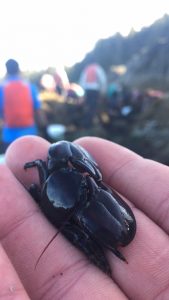 If you are not completely passionate about your degree, life can be difficult. Bamfield is a town of 150 people, so it could be difficult if you aren’t entirely enjoying field school life.
If you are not completely passionate about your degree, life can be difficult. Bamfield is a town of 150 people, so it could be difficult if you aren’t entirely enjoying field school life.- The coursework had the most volume of any semester I’ve taken (and this is coming from a 5th year student). However, it is worth noting that it focused on practical work commonly used by biologists in the field.
- It was relatively close to home (~5 hour drive). This was nice as it allowed me to travel home for Thanksgiving, although if you are looking to get out and experience a new country, this is likely not the route to go.
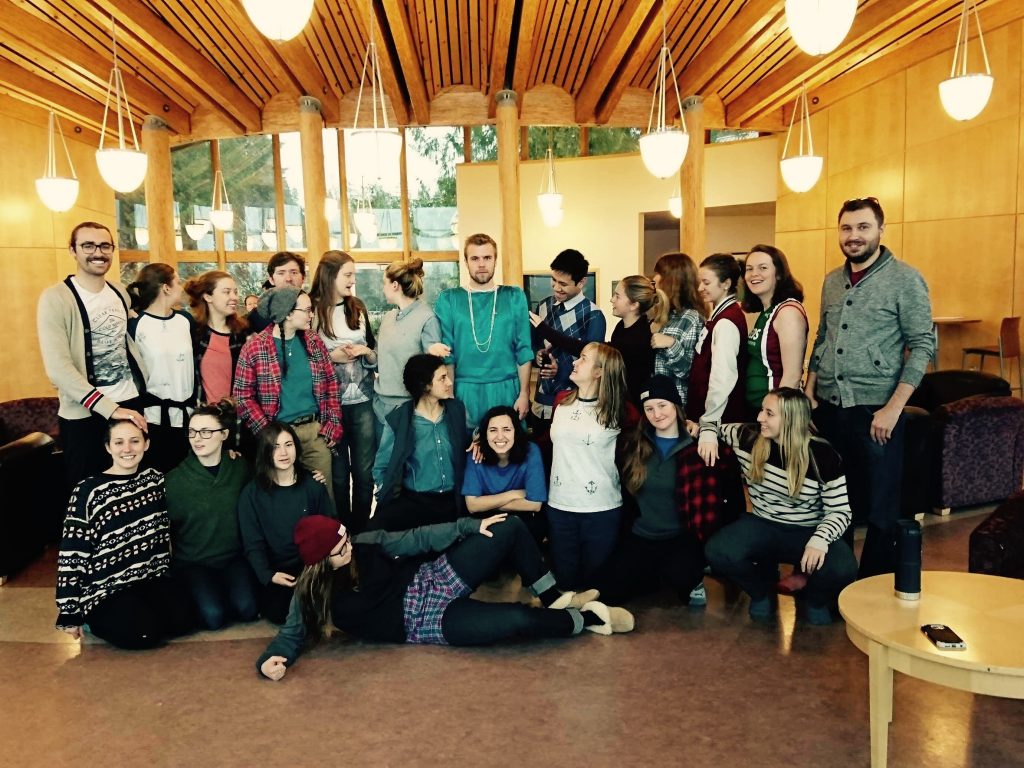
This is a picture from a classroom prank on yours truly. I won’t get into details, but it involved the rest of my class managing to ‘borrow’/wear my entire wardrobe, leaving me with an 80s blue dress, a plastic pearl necklace, and one heck of an explanation to my chuckling professor.
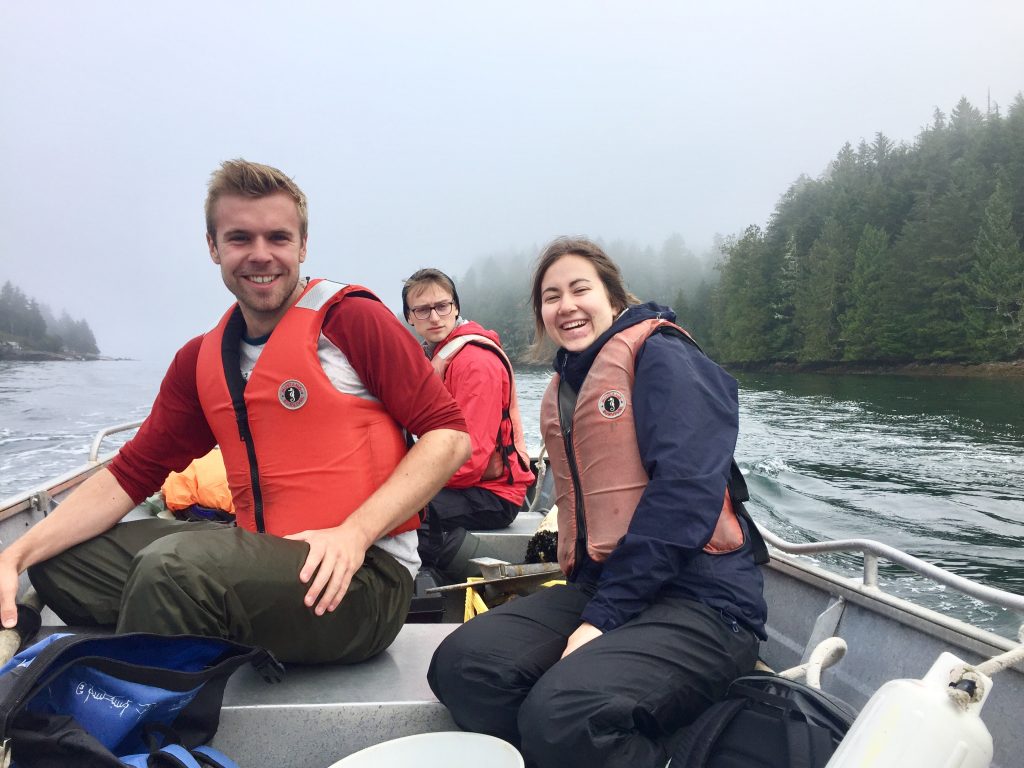
At the BMSC, we each were able to drive small boats to and from our field sites! Here’s one of our first days on the water.
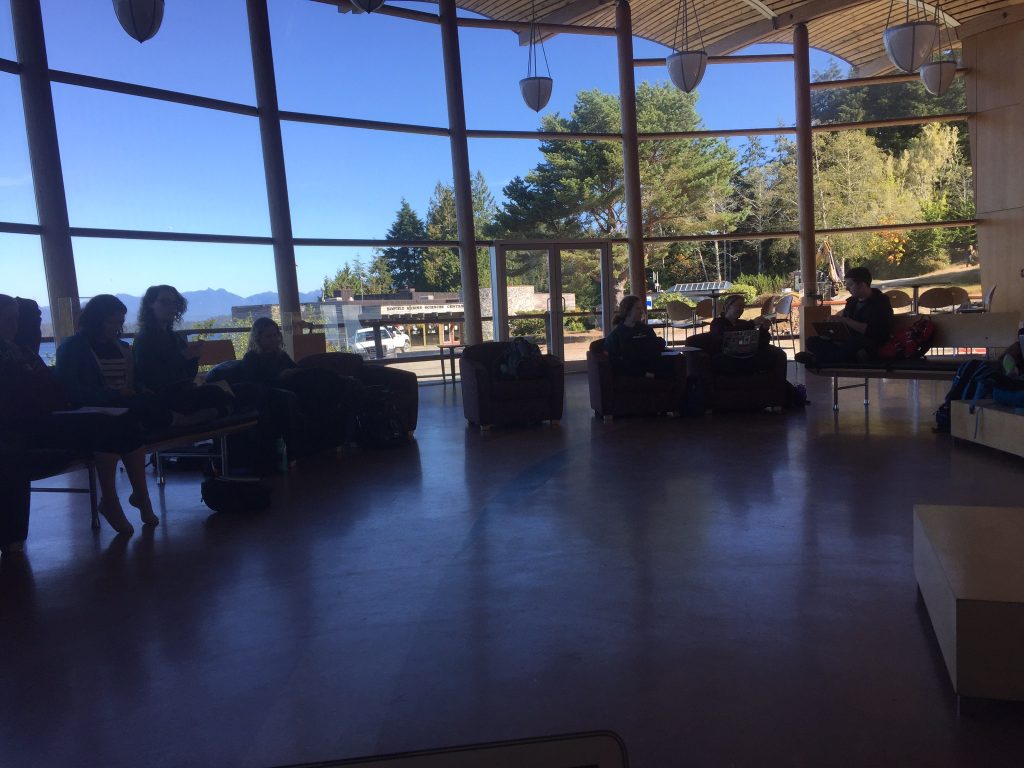
As it turns out, classroom discussions can be far more in-depth and interesting when you’re with your classmates 24/7! (The view doesn’t hurt, either.)
Summary
Ok, so out of my 1.5 years on the road, here is the key question to ask when deciding between field school or international exchange:
What kind of cultural difference do you want, and what aspect of your life do you want to broaden most? Do you want to see the world and advance your social awareness outside of a Canadian context? Choose international exchange. Do you want to know what your degree is all about, and experientially learn what biologists do in the field on a daily basis, while getting research experience? Go for field school.
The bright side
I’ve told you about the pros and cons of each option, but what I haven’t told you is that actually, both field school and international exchange do all of these things – they just provide them to different extents:
–> Field school also exposes you to a different culture – the culture of real-world science. It also requires you to learn in a completely different setting than you are used to.
–> International exchange, on the other hand, also gives you new (and applicable) knowledge into what your faculty looks like in another country. This too adds unique knowledge and something new to your resumé!
So go ahead, choose one! Either one will make your degree unforgettable, and they both change your life forever.
Acknowledgements
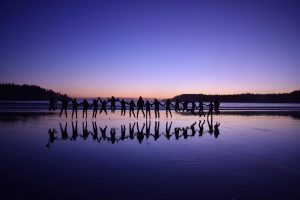 Thank you to all the people that made me fortunate enough to write this post: my friends (internationally and locally) that have brought me joy and enriched my mind, those who have gone out of their way to extend welcome to me (e.g. Stella and the entire Huu-ay-aht First Nations community for their welcome and kindness), and my family for always being there and not letting me starve when I return home from these journeys (among other things).
Thank you to all the people that made me fortunate enough to write this post: my friends (internationally and locally) that have brought me joy and enriched my mind, those who have gone out of their way to extend welcome to me (e.g. Stella and the entire Huu-ay-aht First Nations community for their welcome and kindness), and my family for always being there and not letting me starve when I return home from these journeys (among other things).
If you would like to learn more about the history of Kiixin and the traditional territory of the Nuu-chah-nulth speaking First Nations, and book a tour, you can click below:
Thanks for reading! I’ll be posting more Bamfield/Field School-related details soon.


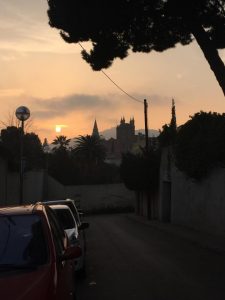
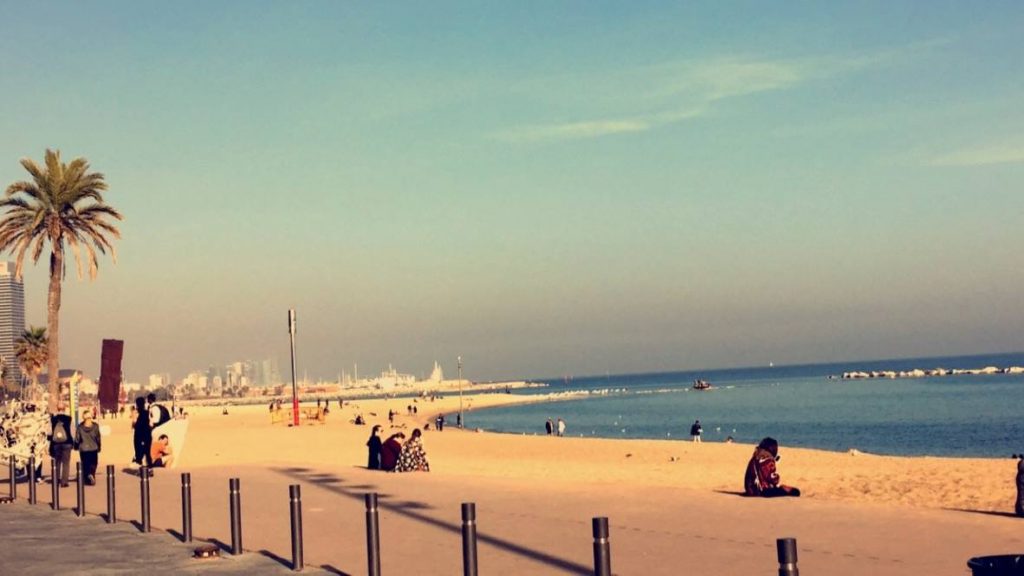
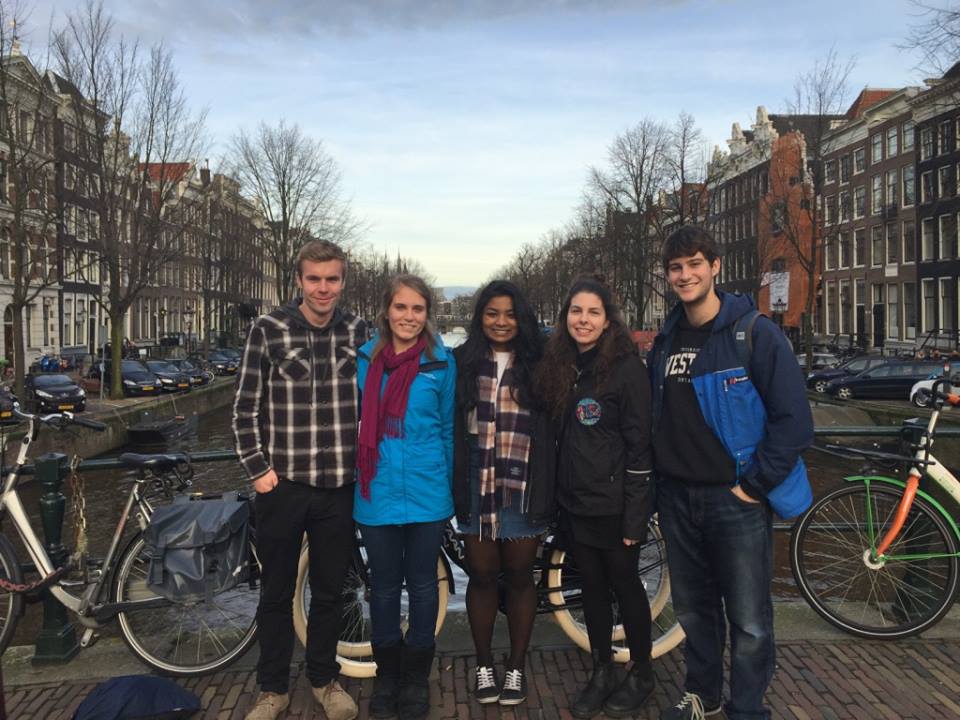
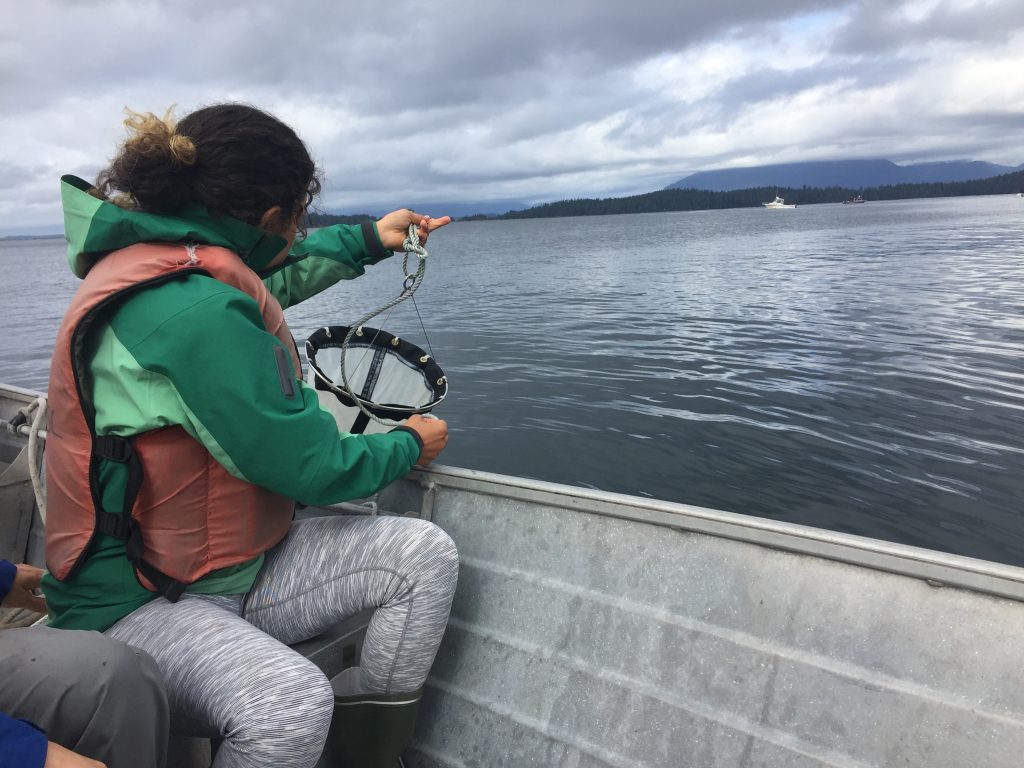
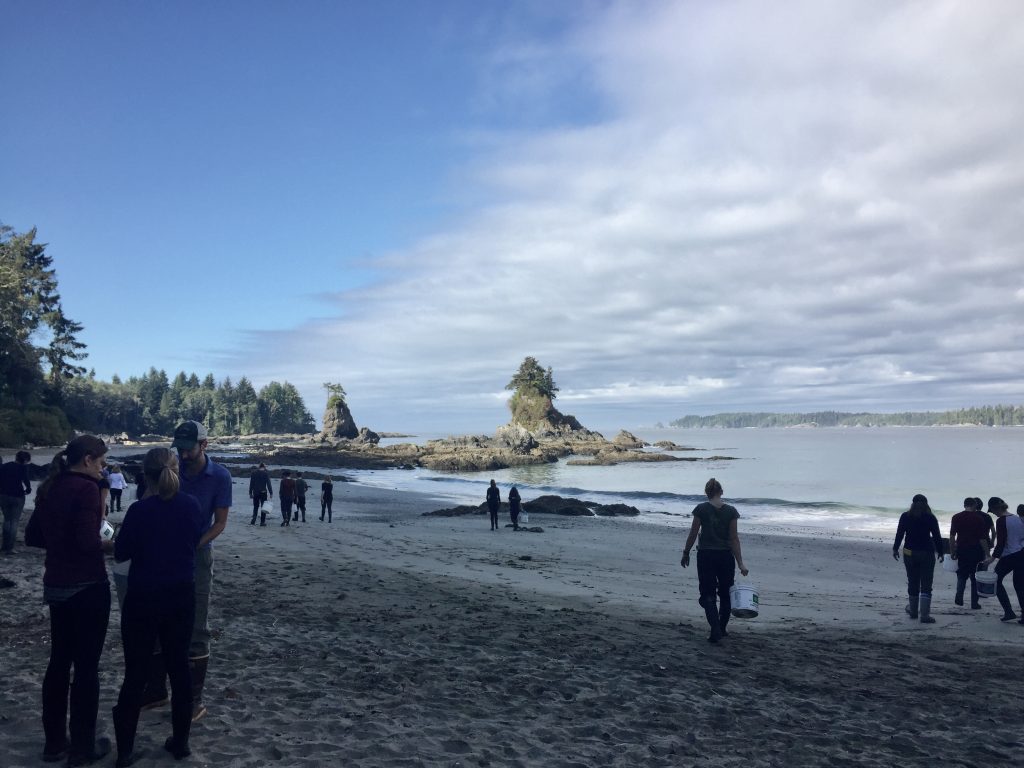
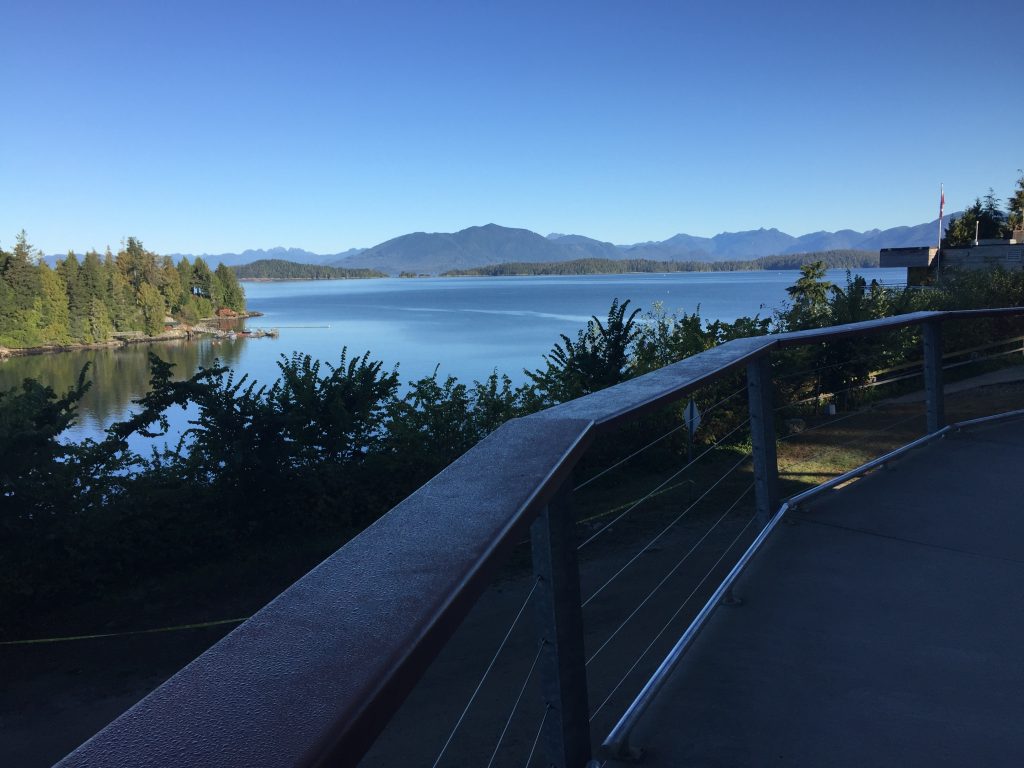
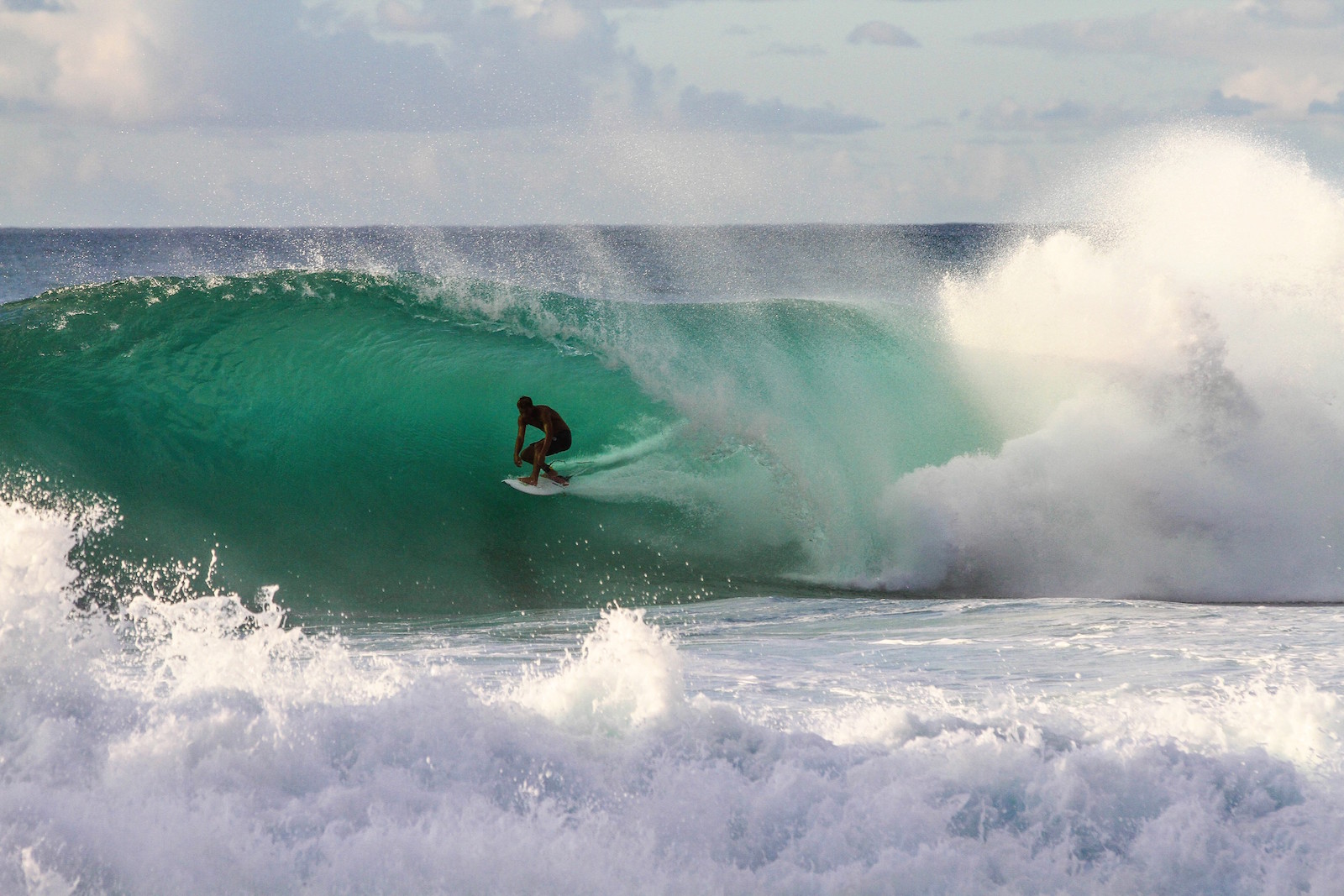
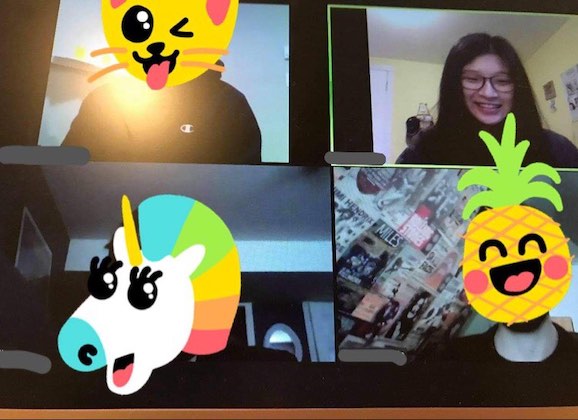
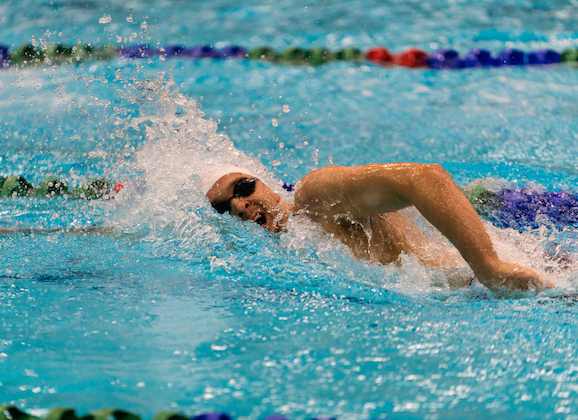
Hello! Field school and exchanges are both something that I have been thinking about, as I am about to start university! It sounds like both would be an amazing experience! I would love to take advantage of both opportunities! Would you recommend doing both? Does it complicate your time back to do both? I don’t want to miss out during my university experience! Thank you for going into depth about your travels!
Hi Mary!
Congrats on almost starting your university career! And thank you for reading, I’m glad you liked the blog 🙂
I would definitely recommend both options, however it will depend on your program and what your priorities will be at the time! For example, I’m in a double major of Biology and Environmental Studies which requires ~5 years for a degree, which left me plenty of time to immerse myself in the UVic campus community with clubs, yet also spend lots of time abroad. But I have friends who spent the time I was at, say, field school, pursuing a laboratory research job, or becoming leaders of clubs here on campus. When the time comes, you’ll likely have many choices of options that will all give you happiness, and none of them are necessarily better or worse!
If you feel flustered with all the options available, don’t worry I did too! The good news is that generally, international exchange and field school aren’t available to first years for that reason: to allow you time to immerse yourself in the University lifestyle, and gain a better idea of how you want to spend your time here.
As for complications with time, from my experience there’s a bit of extra responsibility on you to ensure your courses abroad transfer over properly and that you’re on the right track, but UVic has an excellent international exchange centre and academic advising centre that supported me through the whole process!
Hope that helps! Please don’t hesitate to let me know if you have any more questions 🙂